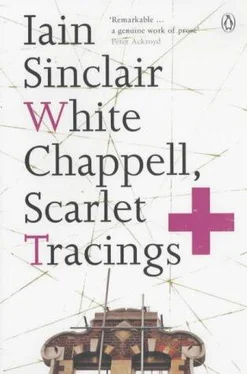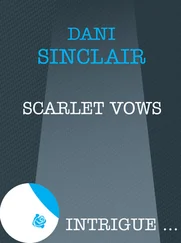Each morning he felt the bones of his face, probed for a weakness, a sagging of the skin. He needed to be about, to be moving, doing: man of air and fire, fierce, high conceits. He plucked and tore at the vine around the cottage doorway; stooped, twisted his thin neck, as if to peer through the cracks in the wood.
‘Ah, M-M-Madame, M-Mrs Gull, I… Dear L–Lady, umm…’
William Gull had preceded his mother and now his head, a solid one, came into contact with Mr Harrison’s nervously tensed and contracted stomach.
‘Y-Yes… I… M-Madame…’
The widow’s hair was backlit, he stumbled among correspondences drawn from the masters of The School of Venice. Her hand, on William’s shoulder, was strong, not delicate, a plain gold band married to her finger.
‘Sir?’
‘If I m-might…?’ Mr Harrison stepped back, gesturing wildly; William following him out and countering his intention of coming forward once more towards the door.
‘Would you care to come into my house, sir?’
He would, he did: manoeuvred, standing, falling, half-bowing, colouring, gesturing, starting up, staggering, uninvited, to a seat at the fireside.
‘Whatsoever thy hand findeth to do…’
What Mr Harrison wished to do, he could not; what Mr Harrison might, in good christian conscience, do — he did. William Gull should attend at Beaumont Rectory each evening, on his return from the village school, and would be tutored, in the Classics, in the revealed word of our Lord, in the observation and description of flora and fauna, both local and general, in the peregrinations of heavenly bodies. There might even be the opportunity, under the closest supervision, of course, of sampling the choicest effusions of the finest poets of the day, such as Sir Walter Scott.
This was satisfactory to Mrs Gull, it was satisfactory to Mr Harrison, and would, in the fullness of time, the rector was confident, be quite satisfactory to Mr Benjamin Harrison, an uncle, who was the Treasurer, no less, of Guy’s Hospital, South-wark, London. The hospital already being William’s landlord, would, in the person of Mr Benjamin Harrison, God willing, William fulfilling his evident, and inherited, promise, and working with all his given abilities, also be his patron. A path was open, winding from the waterside, circuitously, to Beaumont, through many trials and dangers, both moral and physical, many tests of will, to the great world. He should… serve.
Mr Harrison allowed himself, with this torrent of benevolence, to clamp Mrs Gull’s hand between two of his own. To draw her hand up a little way towards his lips, then drop it, so that it fell, palm upwards, on the table: a dead white fern, prophetically engraved, creased with the awful future.
Mr Eves had the victims’ names printed in red on brittle vinegar-coloured cards, black bordered. The first letter of each name had been capitalised and enlarged, illuminated in a densely ornamented block. He took the cards out of a shoebox and held them against his chest, uncertain what to bid.
Joblard and Sinclair leant back from the table, eager, respectful of Eves’ time; feigning a calm they did not feel. Sharing a jug of porter, heavy headed, slopped into china mugs. Eves waved aside their offer.
‘Diabetic. Won’t see New Year. Bugger the injections. Go when I’m ready and go in my own way. Won’t play the yogi, no.’
His skin was waxy and fibrous, unset parchment, cheeks hollow; refined by disease, eaten away to a great delicacy of gesture and movement. Skipping on inessentials.
Dealt out the name cards, a kind of tarot, across the green baize table. His cork-like head nodding across the panes of the small leaded windows. Dark wood behind him. Afternoon tutorial in an Oxford College. The world at a distance.
Mary Ann Nichols, Annie Chapman, Elizabeth Stride, Catherine Eddowes, Marie Jeanette Kelly .
‘No more.’ He anticipated us. ‘Your Tabrams, your Myletts, not part of this. The chapel could have swallowed them at any time. They wobbled over. Not willed. But look at my names — what do you see?’
We saw names, we knew the names. There were other versions of them, the victims might have rendered themselves in a dozen ways, so did Shakespeare — did they remember who they were? These were the names of the victims and they were locked together like a famous football team: they were inseparable. Part of the doctrine.
We stared at the cards. Mr Eves turned from us, reaching for a thermos of tea, poured it, unsteaming, cooled, elbow-dipping temperature, ladled in a few inches of sugar, cup of old dandruff, stirred, sucked rather than drunk; pushed his white lips into the film-surfaced liquid. A smile, stumps of teeth, broken pencils, rabbit mouthed. He had successfully posed a riddle: we had to solve it. He was going nowhere. Retired, for ever, to his scriptorium. The work was done.
‘Take ’em,’ he said, tapping the cards with an uncut fingernail, ‘they don’t mean anything to me anymore.’
He swivelled a desktop magnifying glass, put his thumb against it, a tongue in a window. The whorl forensically enlarged.
‘This is the true spiral,’ he said, ‘the first map of the labyrinth.’
But most through wintry streets I hear
How the midnight harlot’s curse
Blasts the new born infant’s tear
And smites with plague the marriage hearse…
Drumming Blake, Blake drumming like a madness, one of those sugar-hook addictions that get into your head, a spasm, won’t be shifted: set against local pain, pulsing against bodily exhaustion.
The sign of the Pleiades hangs, stars joined into a pint pot, over a public house on the west side of Brick Lane: The Seven Stars. Brides of the Pleiades. ‘Brides’ being the familiar name in this quarter for whores. Star-brides, servants of Orion. Lit corruptions. Do what you will shall be all of the law.
We settle in an oblique corner, bar still empty, sun puddle; the stripper not due on stage for another thirty minutes. Joblard rolls a smoke between large, acid-stained, fingers. A changeling, his face unset. Young man with ash in his hair; mask of power submerged in pleasantries. Performs himself with such practised application that this presented self is become a true self: beneath it a larger mystery. He appeared full-grown, with no luggage, and a palaeolithic past. Marking the bone: nervous of paper.
The wall behind us repeats a scene of disembarkation; masts, castles, dancing. And suddenly I recognise the sentence that Eves has given us.
Mary Ann Nichols, Annie Chapman, Elizabeth Stride, Catherine Eddowes, Marie Jeanette Kelly . MANACESCEMJK. MANAC. ES. CEM. JK. MANAC ES CEM, JK.
The cold truth of that fiction is between us. Inrush of Sumerian breath. The bar, without transition, is filled: men coming in from the brewery, already half-cut, to jape and patronise the Sikh publican, cramming a wall, shoulder to shoulder, from street-door to Gents, enclosing the half stage in fetid attention.
Joblard takes from his jacket pocket a paperback account of the Moors Murders. Flicks through the text, inscribing, on a beermat, the names of the victims; John Kilbride, Lesley Ann Downey, Edward Evans . Arriving at the dreadful statement: JK, LADEE.
Wall of glass, a board stage. None of it matters. There is her time and our time. There are the workers, who have always been workers. For them it is time out. Manac. ‘ What doth the Lord require? ’
The girl is not, like many who work this pitch, deformed. She is notable in the clear skin of her self-knowledge. A black gauze shirt; sitting, ignoring the pens of hot faced draymen, plumbers, cutters, steaming, shirts soaked at the armpits, held back to the occasional bellowed obscenity.
Читать дальше












